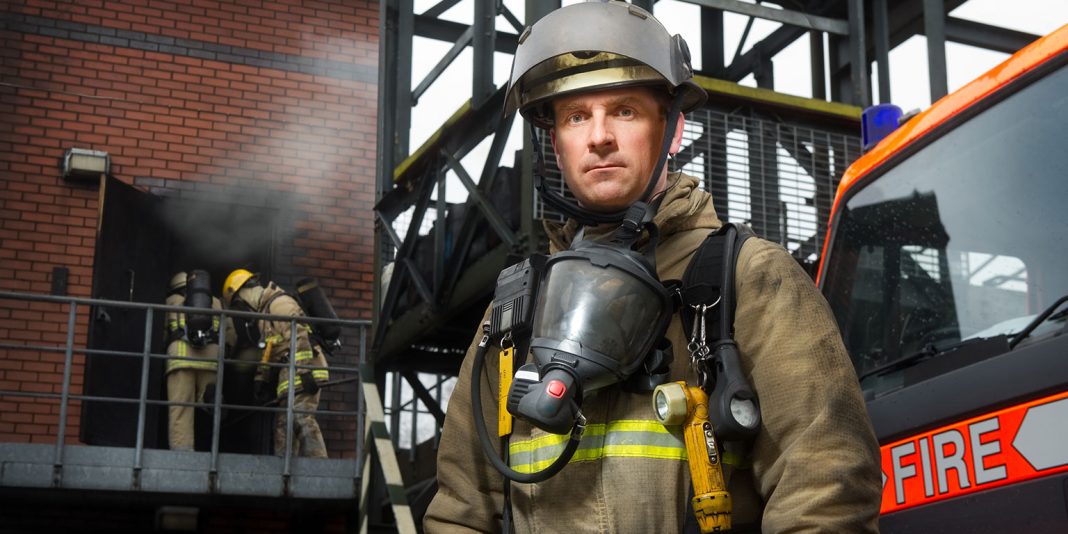Fall prevention specialists from the UK, Australia and New Zealand came together earlier this month to discuss and share approaches to reducing harm from falls in Health Quality & Safety Commission forums in Auckland and Wellington.
Dr Frances Healey, a nurse and deputy director of Patient Safety for the National Health Service (England), said the three nations faced similar challenges and had similar programmes but were all in slightly different places on the journey. She said what many of the forum conversations centred on were the “smaller, human aspects” of falls prevention work, like a recent initiative in the UK using firefighters to deliver exercise programmes for the elderly at the local fire station.
“It is much more attractive to elderly men because it was very manly,” said Healey.
Julie Windsor, the patient safety clinical lead for older people for NHS (England), told Nursing Review that the firefighter initiative grew out of firefighters being so successful in raising fire awareness and fire safety that they had “almost done themselves out of a job”.
She said the chief fire officers realised they had a highly skilled workforce that was possibly being underutilised. Firefighters were also highly trusted and had no particular stigma attached to them as a fire could happen to anybody.
In 2015 firefighters joined forces with the NHS, Age UK, Public Health England and the Local Government Association to sign a new health partnership to help tackle health and social problems, including turning fire service ‘Home Safety’ checks into ‘Safe and Well’ visits to help the vulnerable and those with complex conditions in particular. The aim was not only to reduce the risks of a fire but also to look at reducing falls, loneliness and isolation by spotting hazards like loose rugs, and to signpost people – from the elderly to young families – to local groups for help, support or company.
Windsor said what grew out of this partnership was a further initiative for firefighters to offer exercise programmes for the elderly to help reduce their chances of falling.
She said firefighters were required to be physically fit, “so they looked the part”, and they already had spaces at their stations with exercise equipment. Existing falls prevention services stepped in and trained the firefighters in the correct, evidence-based exercise programme, which the firefighters deliver at the neighbourhood firestation to the elderly in the area.
“The older men, and some of the older woman I must say, have found it a very attractive proposition to go along to the local firestation to be trained by the fire crew,” said Windsor. She said they are run as adjuncts to existing community balance and safety classes but the firefighter classes seemed to be a popular alternative – particularly for the men who might prefer not to go to community classes that are often mostly women.
(Recently New Zealand launched the Live Stronger for Longer website to promote approved community exercise classes for the over-65s to help build leg and core strength to improve balance and reduce the risk of falls. More information at live stronger.org.nz.)
New Zealands’ positive imagery and Oz’s sensitive questions
Healey believes the real value of the tri-nations forum was not in sharing the high-end level areas – such as educational programmes and service provision, where the three countries were already going in the same direction – but in the “little human differences” that fascinate people. So major projects, such as the UK’s now well-established national hip fracture database that had been a “very powerful force” for improvements in service provision and service delivery for older people, had not been discussed at great length.
But what had captured many at the tri-nations forum had been initiatives such as the UK firefighters. Another was an approach to reducing falls by dementia patients in hospital – shared by Lorraine Lovitt, the lead for the New South Wales falls prevention programme – which involved nurses asking the patient’s families what the five most important things were for them to know about their loved one.
Healey said as a visitor from the UK something that particularly struck her was how “positive, cool, fun and even trendy” the images were of older people in the New Zealand falls awareness material. “And that positive imagery is so important to have, rather than the person with the Zimmer frame.”
She said the UK had a variation on this with its ‘Don’t mention the F-word’ campaign, which was where older people used “some fairly colourful analogies” about not wanting to be associated with ‘falls’ and ‘frailty’.






















